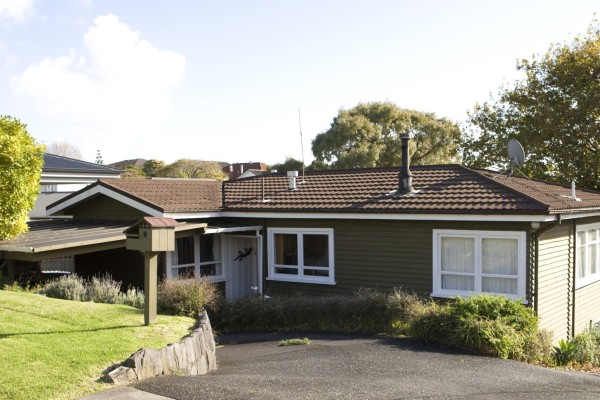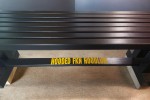10 ways to pay your mortgage off faster

In New Zealand, it’s standard to take 25 to 30 years to pay off your mortgage. With rising mortgage rates, it may be harder to increase the payment on your loan. However, every contribution you make, no matter how small, can help you pay less interest over your loan’s lifetime.
By consistently paying more than the minimum, you can take years off your mortgage and save thousands of dollars in interest-rate repayments. Here’s how.
Pay your mortgage on the day you settle
So, you’ve bought a house and have finished the settlement process. Most people choose to make their first mortgage payment the month after they close. However, if you make a mortgage payment straight away, you’ll actually save money.
How? By making a mortgage payment immediately, you’re reducing the principle of your loan and will start accruing slightly less interest from the get-go. If you make your first payment at the end of the month, your loan has had thirty days to accrue interest, and your repayments will be slightly higher.
Making a mortgage repayment right away can save you around $1,000 on the lifetime of your loan. It’s a small amount in the grand scheme of things, but it’s a payment you don’t have to delay.
Don’t add loan fees to your loan
If you’ve bought a home and paid less than the recommended 20% deposit, you may be charged a fee by your bank. You might also choose to incorporate your closing fees into your loan rather than paying them when you settle.
While these fees can be small ($1-$5,000) avoid adding these to your loan amount. By wrapping fees into your loan, you’ll pay interest on that $5,000 for the next 25 to 30 years.
Make higher repayment amounts
If you’re struggling to make the repayment amounts on your mortgage right now, you’re not alone. However, you can still pay more than the minimum on your repayments when rates go down in the next 12 to 24 months.
Before making higher repayments, check whether or not your bank has an Early Repayment Adjustment (ERA). This is a penalty in the form of a fee for making extra loan repayments. Some banks, like ASB, allow you to increase your repayments by $500 a fortnight or $1,000 a month without being penalised.
Increasing your repayments by up to $1,000 a month over the lifetime of your loan could help you save over $100,000.
Change your monthly repayments to fortnightly
Most people have their mortgage repayments set to go out once a month. But changing to fortnightly payments helps you squeeze in one extra payment yearly.
With monthly repayments, you’ll make 12 large deposits to your bank (one for each month of the year). With fortnightly repayments, you’ll make 26 smaller deposits to your bank. That equates to 13 large deposits over a year because there are slightly more than 4 weeks in a month.
Changing your repayments from once a fortnight to once a month could help you save tens of thousands of dollars over the lifetime of your loan.
Keep your payments the same when you refix
Unlike in some countries, New Zealanders can only fix their mortgages for a maximum of five years. Fixing comes with pros and cons. A fixed loan is generally lower than a floating loan. However, it also means when the market drops, your mortgage could be locked in at a slightly higher repayment rate. On the other hand, if you refix at the right time, you can lock in extra savings for six months to five years.
The key to saving money when you refix your mortgage to a lower rate is to keep your mortgage repayments the same. For example, if your original repayment is $2,000 a month and you refix at a new rate of $1700 a month, keep your mortgage repayments the same. You’ll be putting an extra $300 a month towards the principle of your loan, which reduces the overall amount of interest you pay.
Keeping your mortgage repayments the same when you refix to a lower rate can save you $15-$20,000 over the lifetime of your loan.
Put any extra cash towards your mortgage
One tactic for paying down your mortgage faster is allocating extra money towards paying down your debt. The extra money could come as an annual bonus from your job, a lotto win, a pay rise, or monetary gifts. You could also pay these costs to the principal of your loan when you remortgage. This will help reduce the interest you’ll pay on your low by a considerable margin.
Putting extra cash towards your mortgage could save you thousands in interest payments over the lifetime of your loan.
Split your mortgage for better results
Split mortgages are becoming more common in New Zealand. This is when you split your mortgage in half and keep one half on a fixed rate and the other half on a floating rate. You’ll get the benefits of the ups and downs in the market, like no penalties on repaying your floating rate early.
There are pros and cons to splitting your mortgage. Overall, it offers more flexibility and lets you decide which half of the mortgage you’ll pay off first. For example, if mortgage rates change, your floating rate will decrease, and you can funnel any extra cash into your higher fixed repayment.
Pay down personal debt ASAP
While it’s a good idea to pay down all types of debt, interest repayments on the average mortgage are less than a credit card or personal loan. If you have $10,000 on a card or loan, focus on paying this off as soon as possible, as the interest rate can be as high as 17%-20%.
Go ham on your repayments
Going ham on your mortgage repayments is a great way to reduce the amount of interest you’ll pay over thirty years. Funnelling all your extra money into your mortgage is easier said than done. You may only be able to do this at certain stages of your life — for example, before you have children, after a big promotion or a career change.
One thing you should always do is keep an eye on your outgoing expenditure. It’s easy to let lifestyle creep eat away at your pay rises. Review your spending each year and see what expenses you can eliminate and whether you can increase your mortgage repayments.
Choose a portable loan
If you think you’ll need to move before the end of your fixed mortgage term, choose a home loan that offers portability. This choice helps you avoid exit fees, early repayment charges, and fees for arranging a new mortgage. These fees can run into the thousands, and you’re better off allocating those funds to pay your mortgage.
If you’re planning to move, there is little benefit in making upfront payments with a mortgage that isn’t flexible.
What do our customers say?




For every (wise)move
































